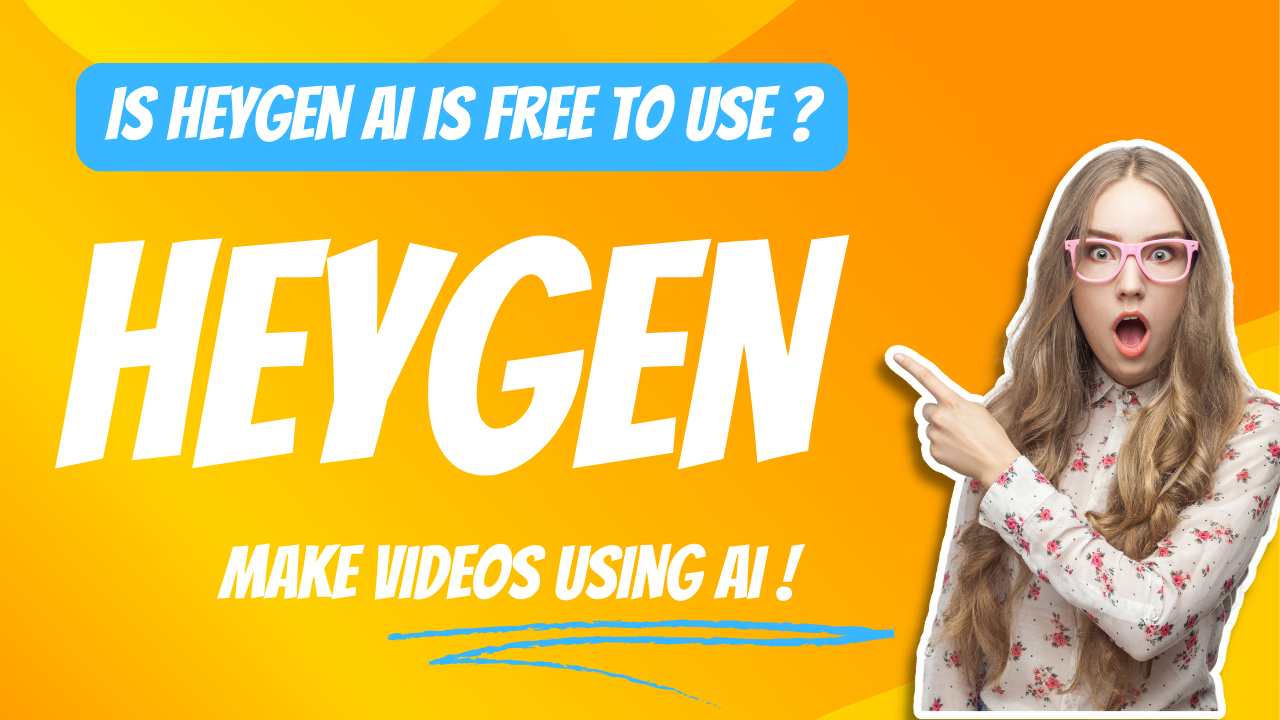AI Solutions for Small Businesses: How AI Can Boost Growth
Discover how AI solutions for small businesses can boost business efficiency and growth with accessible tools. Learn how to leverage AI solutions for marketing, customer service, and more.
As a small business owner, you know the challenges: wearing many hats, juggling daily tasks, and making tough decisions to keep your business afloat. But what if I told you that artificial intelligence could be the secret weapon to make your life easier and help your business thrive? That’s right—AI isn’t just for big corporations anymore. It’s accessible, affordable, and tailor-made to fit the unique needs of small businesses like yours.
In this article, I’ll walk you through exactly how AI can benefit your small business, how to get started, and the specific AI tools that can help you save time, cut costs, and grow faster. Whether you’re looking for AI solutions to enhance customer service, streamline operations, or boost your marketing efforts, we’ve got you covered.
Why Small Businesses Should Care About AI
If you’ve been skeptical about AI, you’re not alone. Many small business owners wonder if it’s overhyped or too complicated. But here’s the truth: AI has become more accessible and user-friendly, and it’s a game changer for businesses of all sizes. In fact, small businesses that adopt AI early are seeing huge benefits, from increased productivity to more personalized customer interactions.
According to a recent report, the global AI market is projected to reach $267 billion by 2027, and small businesses are a big part of that growth. Whether it’s automating tasks, analyzing data, or helping you make smarter decisions, AI can improve nearly every aspect of your business.
Here’s a closer look at how AI can help you:
- Boost Efficiency with Automation: Every small business owner has those tedious tasks that eat up time—whether it’s answering customer queries, scheduling appointments, or processing invoices. AI can automate these repetitive tasks, freeing you to focus on the big picture. For example, an AI chatbot can handle common customer service questions 24/7, meaning you won’t have to respond to the same email for the 100th time.
- Cut Costs: When you automate tasks, you don’t just save time—you also save money. AI can reduce the need for extra manpower by handling routine tasks and minimizing human error. A study by McKinsey found that businesses using AI see an average of 20% in cost savings on operational expenses. That’s money you can reinvest in growth.
- Enhance Customer Experience: In today’s world, customers expect personalized, on-demand service. AI can help you deliver just that by learning customer preferences and behaviors. For instance, AI-powered marketing tools can analyze customer data to send personalized email offers, which can boost sales by up to 50%.
- Improve Decision-Making: AI doesn’t just automate; it also helps you make better decisions. With AI analytics tools, you can gather and process large amounts of data to gain insights into your business performance, market trends, and customer behavior. This allows you to make data-driven decisions that can lead to smarter investments, better inventory management, and more efficient operations.
AI solutions for Small Businesses
The benefits of AI sound great in theory, but what does it look like in practice? Here’s how AI is helping small businesses in real, tangible ways:
1. AI in Marketing and Customer Engagement

One of the easiest ways to dip your toes into AI is by using it to enhance your marketing efforts. AI marketing platforms like HubSpot or ActiveCampaign use machine learning algorithms to analyze customer behavior, helping you create more targeted campaigns.
For example, you could use AI to determine the best time to send out marketing emails or to segment your audience based on their purchasing history. One study found that personalized marketing campaigns can result in a 26% increase in revenue on average.
Relatable Example: Think of AI like the ultimate marketing assistant. I remember the days when I’d send out email blasts and cross my fingers, hoping they’d reach the right people at the right time. With AI, I now know exactly when my audience is most likely to engage, and my open rates have improved dramatically.
2. AI for Inventory Management

Managing inventory can be one of the most challenging aspects of running a small business, especially if you deal with physical products. AI tools like TradeGecko can help by analyzing sales data, seasonal trends, and even market conditions to predict stock needs. This ensures you’re never caught off guard by unexpected shortages or overstocking, both of which can hurt your cash flow.
Story: A local boutique owner I know was always guessing when it came to restocking her inventory. After she started using AI for inventory management, she cut down on wasted stock by 20%, simply by knowing exactly what to order and when.
3. AI in Customer Service
Customers today want instant responses, and let’s face it—no one has time to answer every query in real-time. AI-powered chatbots can do this for you. Tools like Drift or Chatfuel allow you to automate customer interactions on your website or social media platforms, providing answers to FAQs and even handling basic customer service requests.
Not only does this free up your time, but it also provides your customers with immediate assistance, improving their overall experience. According to research, 80% of routine customer inquiries can be handled by AI chatbots, leaving you to focus on the more complex and personalized cases.
Free AI Tools for Small Businesses
If you’re worried that AI sounds expensive, here’s the good news: there are plenty of free or budget-friendly AI tools that are designed specifically for small businesses. You don’t need a huge budget or a tech background to get started. Below are some popular options:

- Grammarly: If you’re writing emails, blog posts, or any type of content, Grammarly’s AI-powered writing assistant ensures your text is clear and professional. It checks for grammar, tone, and clarity, so you don’t have to worry about sending out a typo-ridden message.
- Zapier: This tool is like your digital Swiss army knife. Zapier connects different apps and automates workflows between them. For example, you can set up a workflow where every new lead from your website is automatically added to your CRM and sent a personalized follow-up email.
- Hootsuite: Managing social media is time-consuming, but Hootsuite’s AI-driven scheduling tool makes it easier. It allows you to plan your posts ahead of time and suggests the best times to post for maximum engagement.
- Google Analytics: This free tool uses machine learning to offer insights into your website traffic. It helps you understand how visitors are interacting with your site and what changes can improve your online presence.
- Trello with Butler AI: If you use Trello to manage projects, Butler AI can automate tasks like assigning due dates, sending reminders, or moving cards based on set criteria. This can be a game-changer for small teams trying to stay organized.
Real-World Success Stories
Small businesses across industries are already seeing incredible results by adopting AI. Here are a few inspiring examples:

- A Local Retailer: A small clothing store in my area implemented Bold Metrics, an AI-powered sizing tool that helps customers find the right fit when shopping online. This not only improved the customer experience but also reduced return rates by 15%, saving the business money.
- A Small Restaurant Chain: One café I know used Tock, an AI-powered reservation system, to streamline the reservation process. With AI handling the bookings, they reduced double bookings and improved table turnover rates. This led to a 10% increase in repeat customers, simply by improving the overall dining experience.
- Freelancers and Creatives: Independent freelancers and artists are using tools like Canva with its AI-powered design features to create professional graphics for clients. It’s saving them hours of design time while still delivering high-quality results.
How to Get Started with AI in Your Small Business
Now that you know how AI can transform your business, how do you get started? Here’s a simple roadmap to help you implement AI without feeling overwhelmed:
- Identify Your Pain Points: Where is your business struggling the most? Is it managing customer interactions, keeping up with social media, or handling inventory? Pinpoint the areas where AI can have the most impact.
- Start Small: You don’t have to revamp your entire business overnight. Begin by implementing one or two AI tools that address your most pressing needs. For instance, if customer service is taking up too much time, try using a chatbot. If you’re spending too much time scheduling social media posts, start with a tool like Hootsuite.
- Monitor and Optimize: Keep track of how these tools are working. Are you saving time? Are your customers happier? Use the data to make adjustments and optimize your use of AI over time.
- Stay Informed: AI is a rapidly evolving field, so staying up-to-date on the latest tools and trends can give your business an edge. Regularly research new tools and innovations that could further enhance your operations.
Conclusion
AI isn’t just the future—it’s the present, and it’s here to help small businesses like yours. From improving customer service and marketing efforts to streamlining operations and reducing costs, AI offers numerous benefits that can help your business grow and thrive. And the best part? You don’t need a big budget or technical expertise to start seeing results.
So, what are you waiting for? The tools are out there, many of them free or affordable, ready to transform the way you do business. Start small, stay flexible, and let AI help you take your small business to the next level.
What are the benefits of using AI for small businesses?
AI offers several benefits for small businesses, including:
Increased efficiency: Automating repetitive tasks saves time and resources.
Better decision-making: AI-powered analytics provide actionable insights from data.
Improved customer service: Chatbots and AI-driven tools enhance customer support by responding quickly to inquiries.
Cost savings: AI reduces operational costs by streamlining processes like inventory management and marketing.
Is AI expensive for small businesses?
While advanced AI solutions can be expensive, many affordable and even free AI tools are available for small businesses. For example, tools like Grammarly for content editing, Zapier for automation, and Google Analytics for data insights are low-cost or free options that help businesses start implementing AI.
How can AI improve marketing for small businesses?
AI helps small businesses create personalized marketing campaigns by analyzing customer data. AI tools can recommend tailored content, automate email campaigns, and even manage social media. By improving targeting, businesses see higher engagement and better ROI from their marketing efforts.
Are AI tools difficult to use for small business owners?
Many AI tools are designed to be user-friendly and don’t require extensive technical knowledge. Most platforms offer tutorials and customer support to help users get started. Additionally, many AI tools are plug-and-play, meaning they integrate easily with existing software, allowing small business owners to implement them without technical challenges.
What AI tools are best for small businesses?
Some of the best AI tools for small businesses include:
Grammarly: For content editing and grammar checking.
HubSpot: For marketing automation.
Google Analytics: For web traffic insights.
Hootsuite: For social media management.
Chatbot.com: For automating customer service inquiries. Each of these tools helps improve efficiency without requiring a large investment
Is AI safe for small businesses to use?
Yes, AI is generally safe for small businesses as long as proper data security measures are in place. Most reputable AI tools follow strict data privacy and security protocols. However, it’s important to review the terms and conditions of each tool to ensure customer and business data is handled appropriately.



Pingback: How AI SEO Tools Scale Agile Solutions for Business Growth in 2025 - Ai Shastraa